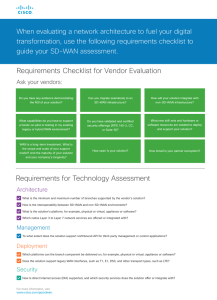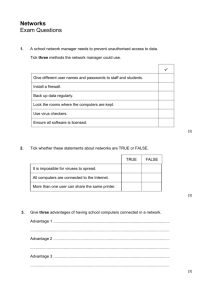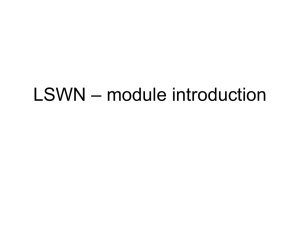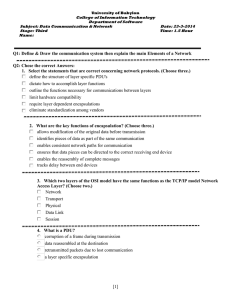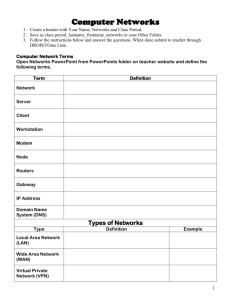WAN Technologies Overview Pertemuan 16 1
advertisement
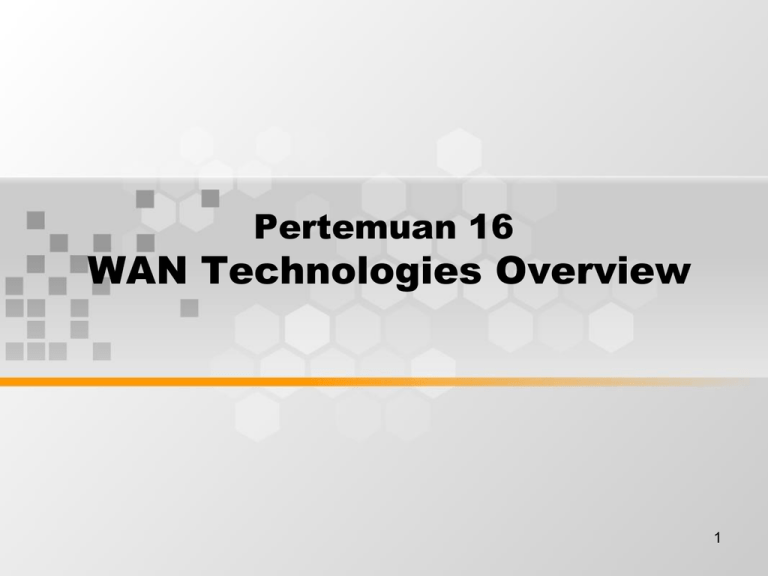
Pertemuan 16 WAN Technologies Overview 1 Discussion Topics • • • • • • • • • • • • • • WAN technology WAN devices WAN standards WAN encapsulation Packet and circuit switching WAN link options Analog dialup ISDN Leased line X.25 Frame Relay ATM DSL Cable modem 2 WAN Technology WAN Service Providers Physical Layer: WANs WAN Line Types and Bandwidth WAN Devices CSU/DSU Modem Transmission WAN Standards WAN Encapsulation WAN Data-Link Protocols Circuit Switching Packet Switching WAN Link Options WAN Link Options Analog Dialup ISDN ISDN Router with standard serial interface, connected to a terminal adapter Router with native ISDN BRI U or S/T interface or PRI Leased Line • Leased lines are not only used to provide direct point-to-point connections between Enterprise LANS, they can also be used to connect individual branches to a packet switched network. WAN with X.25 • X.25 provides a low bit rate, shared-variable capacity that may either be switched or permanent Frame Relay • Most Frame Relay connections are based on PVCs rather than SVCs. • It implements no error or flow control. This leads to reduced latency. • Frame Relay provides permanent shared medium bandwidth connectivity that carries both voice and data traffic. ATM • Asynchronous Transfer Mode (ATM) is a technology capable of transferring voice, video, and data through private and public networks. • It is built on a cell based architecture rather than on a frame-based architecture. DSL • DSL uses existing twisted-pair telephone lines to transport high-bandwidth data • DSL service is considered broadband, as it uses multiple frequencies within the same physical medium to transmit data ADSL Technology Splitter • The local loop connects the splitter to the DSLAM • DSLAM connected to ISP using ATM technology • Voice and data use separate frequency ranges (voice 0-4Khz, data 20Khx – 1Mhz) Cable Modem • Enhanced Cable Modems enable two-way. High speed data transmissions using the same coaxial lines that transmit cable television.
